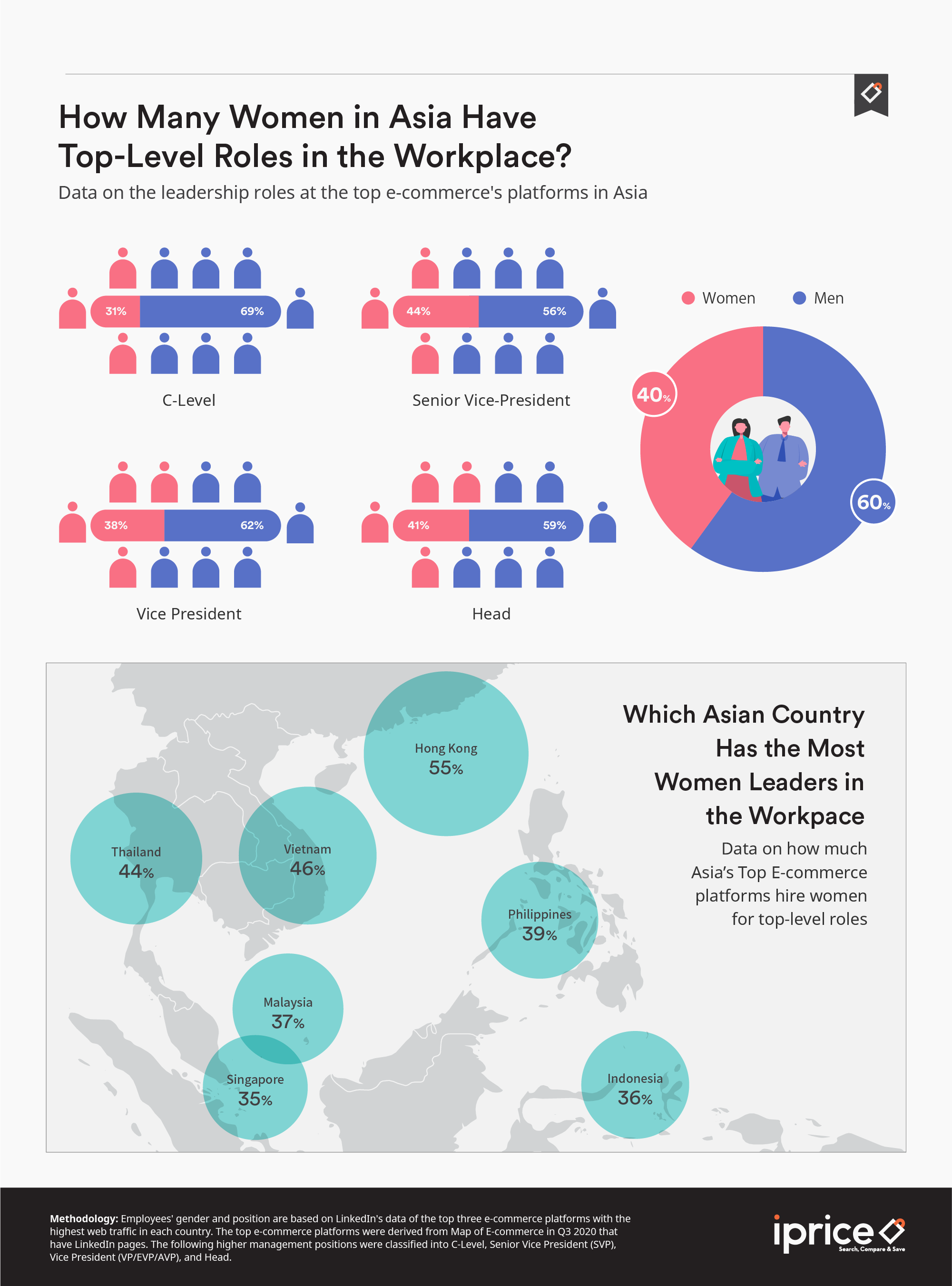Gender diversity in the Philippine e-commerce workforce declined during the coronavirus pandemic, according to a data released by a meta-search website in time for International Women’s Month.
In its 2021 data, product discovery and comparison platform iPrice Group found that the Philippines dipped to the fourth spot among seven countries in Asia with the most women in power in e-commerce.
Only 39% of women holds high-level positions in e-commerce in the Philippines, its data showed.
The country used to ranked second among its neighbor, according to the iPrice’s 2018 data.
In Nikkei Asia’s 2019 report, Philippines leads Asia with the most ratio of women in power, particularly in senior managerial roles.
“The Philippines’ ratio of women in senior management positions stood at 43%, versus just 12% in Japan,” Nikkei Asia’s report read.
Meanwhile, iPrice cited a report of US-based National Public Radio which said that the gender roles of women within their respective households as among the possible reasons why they are resigning from their jobs during the pandemic.
“According to NPR, there are much more women leaving the workforce than men during the pandemic. There may still be a distinction of gender roles within the household due to the many years of women’s unconscious bias to be family-oriented. That said, Filipinas may be taking care of their children, who are coerced to be educated at home,” said the firm in a statement.
“This hypothesis makes the most sense as the top three countries, Hong Kong, Vietnam, and Thailand, didn’t undergo as stringent lockdowns as the other listed Asian countries,” it added.
The data of iPrice on employees’ gender and position were based on LinkedIn’s figures.
It looked at the top three e-commerce platforms with the highest web traffic in each country. These are in Hong Kong and six countries in Southeast Asia, including Philippines, Vietnam, Thailand, Malaysia, Singapore and Indonesia.

Meanwhile, in observance of the International Women’s Month, several women’s rights organizations initiated gestures and activities to help empower ordinary Filipino women.
The Philippine Commission Women organized an online forum series called “Juana Laban sa Pandemya, Kaya!” in partnership with United Nations Women Asia and the Pacific last week.
In line with this event, Facebook page Science Journo Ako, which is an advocacy of the Department of Science and Technology, shared photos of noteworthy Filipino women in Science.
“In celebration of the 2021 Women’s Month this March, we recognize Filipino women who contributed to the different fields of science and research, and development. We salute your commitment to your careers and your desire to discover and develop science breakthroughs that contribute to the lives of many Filipinos!” read the post.
In a Facebook post, Gabriela Youth-UP Diliman also released a series of photos of female revolutionary heroes and their corresponding star signs.
“Starting International Women’s Month with something fun! Find out which of these revolutionary women leaders you share signs with and comment if you guys agree,” read the caption.
“Fun fact: It’s Pisces Season and Gabriela Silang is a Pisces herself! Coincidence? We think not,” it added.
Google recently honored Filipina activist Rosa Sevilla de Alvero, one of the most influential suffragists in the Philippines via its Google Doodle.
READ: On her 142nd birthday, influential suffragist Rosa Sevilla de Alvero makes it to #GoogleDoodle










